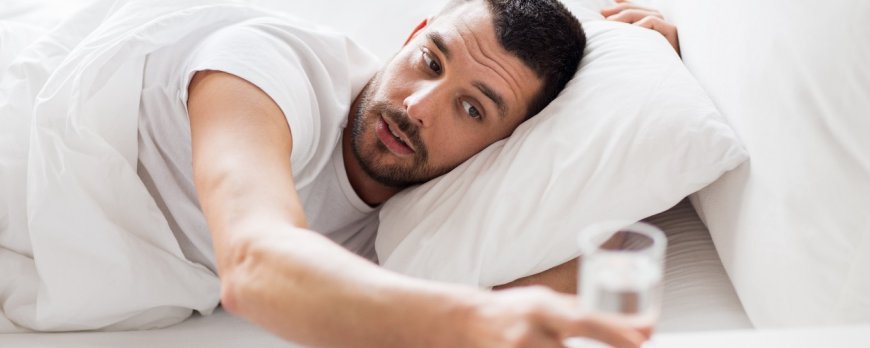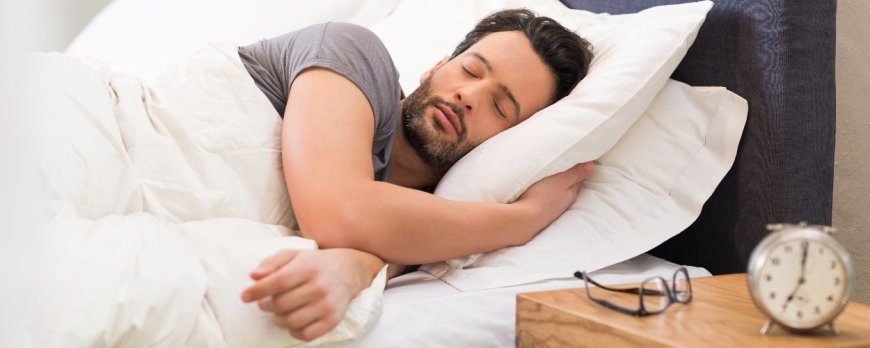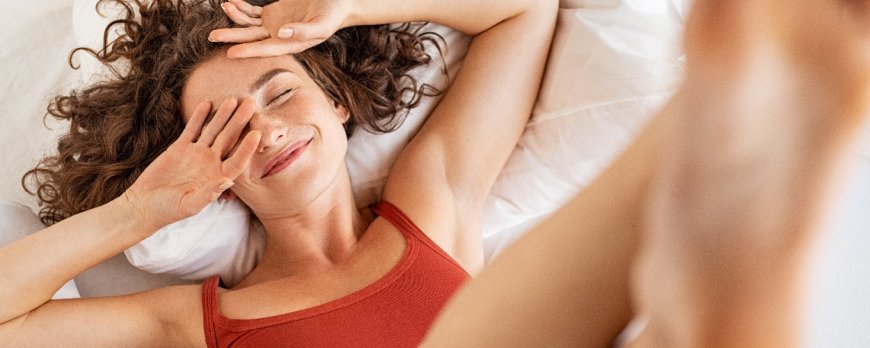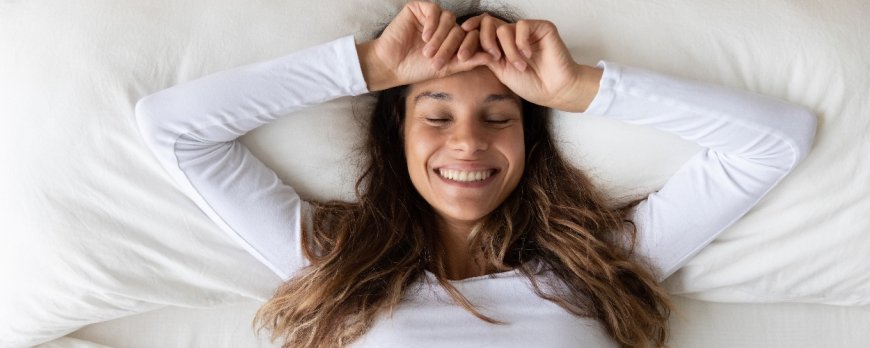When should I stop drinking water before bed?
Understand when should I stop drinking water before bed to improve sleep quality. Learn to balance hydration for better sleep and overall health.

When should I stop drinking water before bed?
Many people wonder about the optimal time to stop drinking water before going to bed. It is generally recommended to stop drinking water at least 2 hours before bedtime to prevent waking up in the middle of the night to urinate. Drinking water before bed may increase the need to urinate during the night, disrupting sleep and potentially leading to sleep deprivation.
While the body naturally slows down urine production during sleep, excessive fluid intake can push it past this threshold. However, staying hydrated throughout the day is important for overall health, and mild dehydration can impact sleep quality.
It is suggested to drink between 2.5 and 4.5 liters of water per day, depending on body weight and level of activity. Drinking water before bed can also help prevent dehydration and support the body's systems that impact sleep. However, excessive fluid intake before bed can contribute to nocturia, especially for individuals with certain conditions or taking diuretic medications.
To reduce nocturia, it is advisable to reduce fluid intake in the evening, avoid alcohol, caffeine, and sugary drinks before bed, and consult a doctor if the issue persists. It's important to find a balance between staying hydrated and avoiding excessive nighttime urination to promote quality sleep.
Key Takeaways:
- Stopping water intake at least 2 hours before bed can prevent nighttime urination and promote uninterrupted sleep.
- Mild dehydration can negatively impact sleep quality, so it's important to stay hydrated throughout the day.
- The recommended daily water intake ranges from 2.5 to 4.5 liters, depending on body weight and activity level.
- Drinking water before bed can help prevent dehydration and support sleep-related bodily functions.
- Excessive fluid intake before bed can contribute to nocturia, and it's important to manage fluid intake and consult a doctor if the issue persists.

The Impact of Water Intake Before Sleep
Consuming water before bed can have both positive and negative effects on sleep and overall hydration. It is important to understand how night-time water consumption can impact our rest and well-being.
On one hand, drinking water before bed can help prevent dehydration, as our bodies naturally lose water while we sleep. This can support the body's systems that contribute to quality sleep, such as maintaining a stable body temperature and facilitating proper brain function. Adequate hydration also aids digestion and can help alleviate nighttime heartburn and indigestion.
On the other hand, excessive fluid intake before bed can lead to nocturia, which is the need to wake up during the night to urinate. This can disrupt sleep and potentially cause sleep deprivation. It is particularly important to limit fluid intake in the evening for individuals who already experience nocturia or have conditions such as diabetes or bladder problems. Certain medications, such as diuretics, can also increase the likelihood of nocturia.
The Importance of Balance
To promote quality sleep, it is crucial to strike a balance between staying hydrated and avoiding excessive nighttime urination. Here are some tips to help achieve this balance:
- Drink plenty of water throughout the day to maintain overall hydration.
- Reduce fluid intake in the evening, especially within two hours of bedtime.
- Avoid consuming alcohol, caffeine, and sugary drinks before bed, as they can increase urine production.
- If nocturia persists despite these efforts, it is advisable to consult a doctor for further evaluation and guidance.
In conclusion, the impact of water intake before sleep depends on finding the right balance between hydration and managing nighttime urination. Staying adequately hydrated throughout the day is important for overall health and sleep quality, but excessive fluid consumption in the evening can disrupt sleep. By being mindful of fluid intake timing and considering individual circumstances, we can optimize our bedtime habits and promote better sleep and overall well-being.
Recommended timing to stop drinking water before bed
To prevent disruptions to sleep, it is generally advised to stop drinking water at least 2 hours before going to bed. This allows your body enough time to process and eliminate the excess fluid, reducing the likelihood of waking up in the middle of the night to use the bathroom.
While it is important to stay hydrated throughout the day, drinking water too close to bedtime can increase the need to urinate during the night, leading to sleep disturbances. By establishing a cut-off time for water intake before bed, you can promote better sleep quality and reduce the chances of sleep deprivation.
It is worth noting that drinking water before bed can have its benefits. Adequate hydration supports the body's various systems, including those that impact sleep. It can help prevent dehydration, which can negatively affect sleep quality and overall health. However, it is crucial to find a balance between staying hydrated and avoiding excessive nighttime urination.
If you frequently experience nocturia, or the need to wake up multiple times during the night to urinate, consider reducing your fluid intake in the evening. Additionally, it may be helpful to avoid consuming alcohol, caffeine, and sugary drinks before bed, as these can further increase urine production. If the issue persists, it is advisable to consult a doctor, as underlying medical conditions or medications may be contributing to the excessive nighttime urination.
The importance of hydration throughout the day
Maintaining proper hydration levels throughout the day is essential for optimal health and quality sleep. Water plays a vital role in numerous bodily functions, including regulating body temperature, aiding digestion, and supporting the transportation of nutrients and oxygen to cells. When it comes to sleep, hydration is equally important. Dehydration can lead to discomfort, irritability, and difficulty falling asleep or staying asleep.
To ensure adequate hydration, it is recommended to drink between 2.5 and 4.5 liters of water per day, depending on factors such as body weight and level of activity. While drinking water before bed has its benefits, it's crucial to find a balance to avoid disruptive nighttime bathroom trips.
Health tips for bedtime water
- Avoid excessive fluid intake close to bedtime to reduce the likelihood of nocturia, or excessive nighttime urination.
- Limit or avoid alcohol, caffeine, and sugary drinks, as they can act as diuretics and contribute to nocturia.
- Spread out your water consumption throughout the day to ensure proper hydration without overloading your system before sleep.
In some cases, excessive nighttime urination may persist despite efforts to manage fluid intake. If this occurs, it is advisable to consult a healthcare professional who can provide further guidance and evaluate for any underlying health conditions.
By prioritizing hydration throughout the day and finding the right balance of water intake before bed, you can support your overall health, promote quality sleep, and wake up feeling refreshed and rejuvenated.

Balancing water intake for better sleep
Finding the right balance between hydration and minimizing nighttime bathroom trips is crucial for improving sleep quality. It is generally recommended to stop drinking water at least 2 hours before bedtime to prevent waking up in the middle of the night to urinate. Drinking water before bed may increase the need to urinate during the night, disrupting sleep and potentially leading to sleep deprivation.
While the body naturally slows down urine production during sleep, excessive fluid intake can push it past this threshold. However, staying hydrated throughout the day is important for overall health, and mild dehydration can impact sleep quality. It is suggested to drink between 2.5 and 4.5 liters of water per day, depending on body weight and level of activity.
Drinking water before bed can also help prevent dehydration and support the body's systems that impact sleep. However, excessive fluid intake before bed can contribute to nocturia, especially for individuals with certain conditions or taking diuretic medications. To reduce nocturia, it is advisable to reduce fluid intake in the evening, avoid alcohol, caffeine, and sugary drinks before bed, and consult a doctor if the issue persists.
It's important to find a balance between staying hydrated and avoiding excessive nighttime urination to promote quality sleep. By following recommended guidelines for water intake and making conscious choices about fluid consumption before bed, individuals can optimize their sleep and overall well-being.
Understanding the body's natural urine production during sleep
During sleep, the body naturally slows down urine production to prevent disruption, but excessive fluid intake can counteract this process. Understanding how the body regulates urine production during sleep can help individuals make informed decisions about their water intake before bedtime.
The body's circadian rhythm, or internal clock, plays a significant role in urine production. As we prepare for sleep, hormone levels shift and the kidneys reduce the production of urine. This reduction helps to minimize the need to wake up during the night for bathroom trips.
However, consuming large amounts of water before bed can overwhelm the body's natural mechanisms. When we drink excessive amounts of fluid close to bedtime, the kidneys may continue to produce urine at a normal rate, leading to more frequent nighttime urination and potential sleep disturbances.
If you find yourself waking frequently during the night to use the bathroom, it may be helpful to reduce your fluid intake in the evening, particularly within the last two hours before bed. This can help prevent overloading the kidneys and promote better sleep quality.
Recommended Daily Water Intake
The ideal daily water intake ranges from 2.5 to 4.5 liters, depending on factors such as body weight and physical activity. Staying hydrated throughout the day is essential for maintaining overall health and promoting quality sleep. Proper hydration supports various bodily functions that directly impact sleep, such as temperature regulation and the production of hormones that regulate sleep-wake cycles.
To ensure you're meeting your daily water intake needs, consider the following recommendations:
- Calculate your water intake based on body weight - a general guideline is to consume 30-35 milliliters of water per kilogram of body weight.
- Adjust water intake based on activity level - individuals who engage in moderate to intense physical activity may need to consume more water to compensate for fluid loss through sweating.
- Spread water consumption throughout the day - sipping water consistently throughout the day is more effective than consuming large amounts at once.
Drinking Water Before Bed
While it's important to stay hydrated, it is generally recommended to stop drinking water at least 2 hours before bedtime. This allows enough time for the body to process the fluids and reduces the likelihood of needing to wake up during the night to urinate. Drinking water before bed can help prevent dehydration while supporting the body's systems that impact sleep. However, excessive fluid intake before bed can contribute to nocturia, a condition characterized by frequent nighttime urination.
To minimize nocturia and promote quality sleep, it is advisable to:
- Reduce fluid intake in the evening, especially within 2 hours of bedtime.
- Avoid consuming alcohol, caffeine, and sugary drinks before bed, as they can act as diuretics and increase urine production.
- Consult a doctor if you consistently experience excessive nighttime urination, as it may be a symptom of an underlying medical condition or medication side effects.
It's important to find a balance between staying hydrated and avoiding excessive nighttime urination to promote quality sleep and overall well-being.
Benefits of Drinking Water Before Bed
Consuming a moderate amount of water before bed can provide several benefits, such as maintaining hydration levels and supporting optimal sleep function. While it is generally recommended to stop drinking water at least 2 hours before bedtime to minimize nighttime urination, ensuring adequate hydration throughout the day is essential for overall health and wellbeing.
Drinking water before bed can help prevent dehydration, especially if you have been active or exposed to warmer temperatures during the day. Dehydration can lead to feelings of fatigue, impair cognitive function, and negatively impact sleep quality. By hydrating before bed, you can replenish any fluid losses and ensure your body has enough water to carry out essential bodily functions during sleep.
Key Benefits of Drinking Water Before Bed:
- Maintains hydration levels
- Soothes dry mouth and throat
- Supports optimal sleep function
- Helps prevent dehydration
- Aids in regulating body temperature
It is important to strike a balance between staying hydrated and minimizing the risk of excessive nighttime urination. If you find that drinking water before bed leads to frequent trips to the bathroom, consider reducing your fluid intake in the evening and avoiding beverages with diuretic properties, such as alcohol and caffeine. Additionally, if you regularly experience nocturia (excessive nighttime urination) despite managing fluid intake, it is advisable to consult a healthcare professional for further evaluation and guidance.
Remember, keeping your body adequately hydrated throughout the day is crucial for optimal functioning, including getting a restful night's sleep. By understanding the recommended timing to stop drinking water before bed and adopting healthy hydration habits, you can promote better sleep quality and overall wellbeing.

Excessive nighttime urination and nocturia
Excessive fluid intake before bed can lead to nocturia, which is characterized by frequent urination during the night. This condition can disrupt sleep and affect overall sleep quality. Nocturia can be particularly troublesome for individuals who consume a significant amount of water or other fluids close to bedtime.
It's important to find a balance between staying hydrated and minimizing nighttime bathroom trips. Here are some tips to help manage nocturia:
- Reduce fluid intake in the evening, especially in the hours leading up to bedtime.
- Avoid consuming alcohol, caffeine, and sugary drinks before going to bed, as these can increase urine production.
- Empty your bladder completely before getting into bed to minimize the need to wake up during the night.
- Consider consulting a doctor if excessive nighttime urination persists despite efforts to manage fluid intake, as it may be a symptom of an underlying medical condition.
Remember, maintaining proper hydration throughout the day is important for overall health and wellbeing. However, it is advisable to be mindful of water consumption at night to promote uninterrupted sleep and minimize the occurrence of nocturia. By finding the right balance, you can support your body's natural sleep patterns and wake up feeling refreshed in the morning.
Managing nocturia and minimizing nighttime bathroom trips
To reduce the frequency of nighttime bathroom trips, it is advisable to reduce fluid intake in the evening and avoid certain beverages before bed. Here are some tips to help manage nocturia and promote a better night's sleep:
- Limit evening fluid intake: By reducing the amount of fluids you consume in the evening, especially in the hours leading up to bedtime, you can decrease the likelihood of waking up to use the bathroom during the night.
- Avoid diuretic beverages: Certain beverages, such as those containing caffeine or alcohol, can have a diuretic effect, increasing urine production and the need to urinate. It's best to avoid these drinks in the evening to minimize nocturia.
- Stay hydrated throughout the day: While reducing evening fluid intake, it's important to ensure that you stay properly hydrated during the day. Aim to drink between 2.5 and 4.5 liters of water, depending on your body weight and level of physical activity.
- Establish a bedtime routine: Creating a consistent bedtime routine can signal to your body that it's time to wind down and prepare for sleep. Incorporate relaxation techniques, such as deep breathing or reading a book, to promote a restful night's sleep.
When to seek medical advice
If you continue to experience excessive nighttime urination despite making lifestyle adjustments, it may be necessary to consult a healthcare professional. They can help determine the underlying cause of your nocturia and provide appropriate guidance or treatment options. Medical conditions such as diabetes, urinary tract infections, or bladder disorders can contribute to nocturia and may require further evaluation.
Remember, finding a balance between staying hydrated and minimizing nighttime bathroom trips is essential for promoting quality sleep. By following these tips and seeking medical advice if needed, you can improve your sleep quality and overall well-being.
When to seek medical advice
If nocturia continues to disrupt sleep despite adjustments in fluid intake, it is recommended to consult a healthcare professional for further evaluation and guidance. Excessive nighttime urination, especially when it persistently affects sleep quality, may be a sign of an underlying medical condition that requires medical attention.
In some cases, nocturia can be a symptom of conditions such as urinary tract infections, bladder dysfunction, diabetes, or kidney problems. To determine the cause and appropriate treatment, it is essential to seek medical advice.
A healthcare professional will perform a thorough evaluation, including a medical history review, physical examination, and possibly further diagnostic tests. These may include urine analysis, blood tests, ultrasound, or urodynamic studies to assess bladder function.
Based on the findings, the healthcare professional can provide personalized recommendations and treatment options to help manage nocturia effectively. This may involve medications, lifestyle modifications, or targeted therapies to address the underlying cause and improve sleep quality.
Conclusion
Finding the right balance between staying hydrated and avoiding excessive nighttime urination is crucial for promoting quality sleep and overall well-being. It is generally recommended to stop drinking water at least 2 hours before bedtime to prevent waking up in the middle of the night to urinate. Drinking water before bed may increase the need to urinate during the night, disrupting sleep and potentially leading to sleep deprivation.
While the body naturally slows down urine production during sleep, excessive fluid intake can push it past this threshold. However, staying hydrated throughout the day is important for overall health, and mild dehydration can impact sleep quality. It is suggested to drink between 2.5 and 4.5 liters of water per day, depending on body weight and level of activity.
Drinking water before bed can also help prevent dehydration and support the body's systems that impact sleep. However, excessive fluid intake before bed can contribute to nocturia, especially for individuals with certain conditions or taking diuretic medications. To reduce nocturia, it is advisable to reduce fluid intake in the evening, avoid alcohol, caffeine, and sugary drinks before bed, and consult a doctor if the issue persists.
Overall, finding a balance between staying hydrated and avoiding excessive nighttime urination is crucial for promoting quality sleep. By following the recommended guidelines for water intake and making necessary adjustments, individuals can support their overall health and improve their sleep quality.
FAQ
Q: When should I stop drinking water before bed?
A: It is generally recommended to stop drinking water at least 2 hours before bedtime to prevent waking up in the middle of the night to urinate.
Q: What is the impact of water intake before sleep?
A: Drinking water before bed may increase the need to urinate during the night, disrupting sleep and potentially leading to sleep deprivation.
Q: What is the recommended timing to stop drinking water before bed?
A: It is recommended to cease water intake at least 2 hours before bedtime to minimize disruption to sleep due to nighttime urination.
Q: Why is hydration throughout the day important?
A: Staying hydrated throughout the day is important for overall health and can also impact sleep quality. Mild dehydration can affect sleep quality.
Q: How can I balance water intake for better sleep?
A: Finding a balance between staying hydrated and avoiding excessive nighttime urination is important. It is recommended to reduce fluid intake in the evening and avoid alcohol, caffeine, and sugary drinks before bed.
Q: What is the body's natural urine production during sleep?
A: The body naturally slows down urine production during sleep. Excessive fluid intake before bed can push urine production past this threshold.
Q: What is the recommended daily water intake?
A: It is suggested to drink between 2.5 and 4.5 liters of water per day, depending on body weight and level of activity.
Q: What are the benefits of drinking water before bed?
A: Drinking water before bed can help prevent dehydration and support the body's systems that impact sleep.
Q: What is excessive nighttime urination and nocturia?
A: Excessive nighttime urination, known as nocturia, can be caused by drinking water before bed and can disrupt sleep patterns.
Q: How can I manage nocturia and minimize nighttime bathroom trips?
A: To reduce nocturia, it is advisable to reduce fluid intake in the evening, avoid alcohol, caffeine, and sugary drinks before bed, and consult a doctor if the issue persists.
Q: When should I seek medical advice?
A: If excessive nighttime urination persists despite efforts to manage fluid intake, it is appropriate to consult a doctor for further evaluation.
































































































































